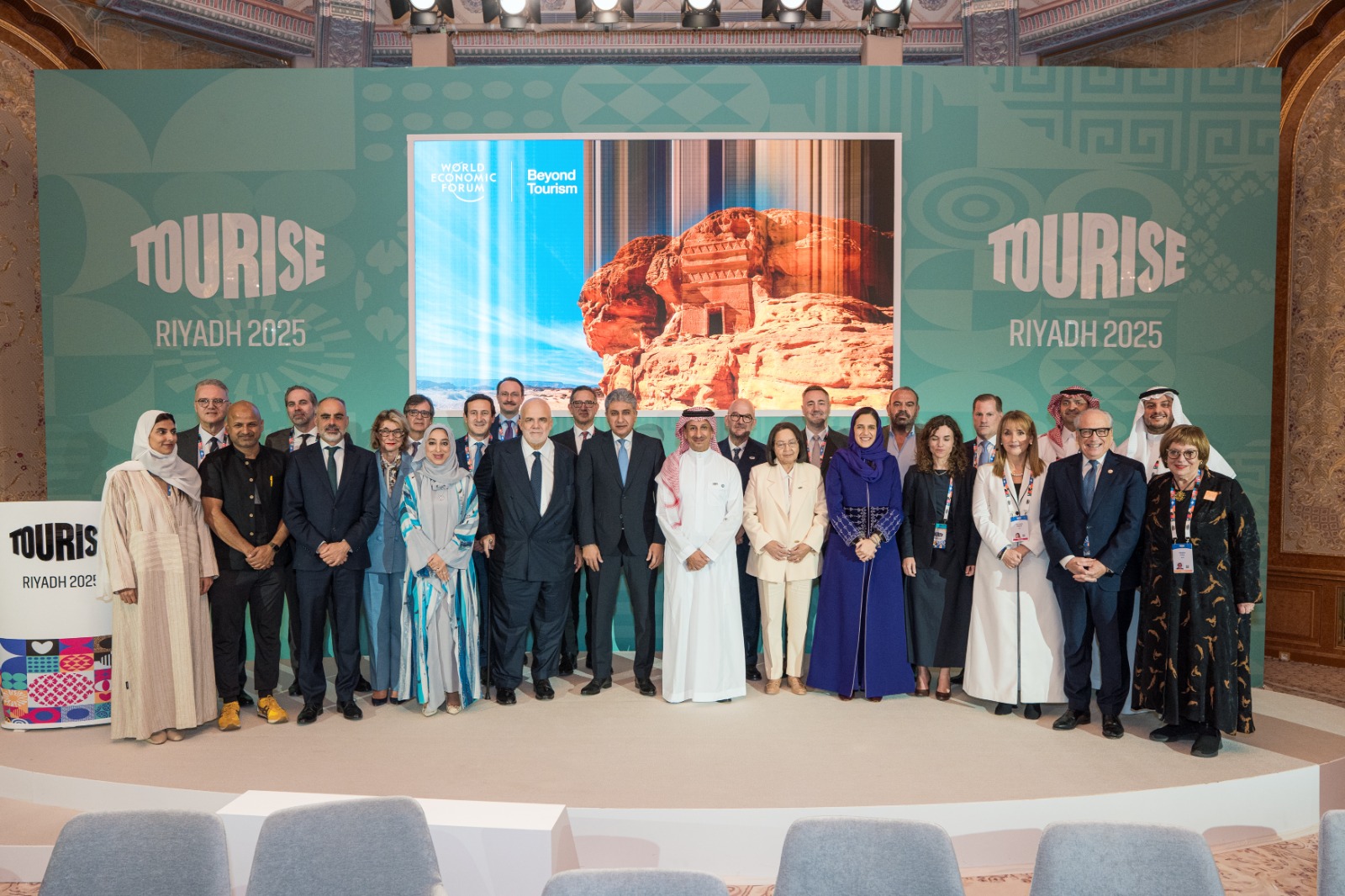
CCTV: Global foreign direct investment (FDI) flows fell 49 percent in the first half of 2020 compared to 2019, as revealed by UNCTAD’s latest report released on October 27, while FDI inflows to China remained relatively resilient. UNCTAD officials also said that as of September, the size of FDI to China had grown by 2.5 percent compared with the same period last year. What is China’s comment on this?
Wang Wenbin: China’s FDI growth against the odds is not only a vote of confidence cast by the outside world for China’s development prospects, but also a good scorecard for China’s sustained efforts in promoting reform and opening-up. Since the beginning of this year, China has twice rolled out new policies aimed at stabilizing foreign investment, updated the negative lists for foreign investment concerning the whole country and the pilot free trade zones respectively, set up Hainan free trade port, added three pilot free trade zones, and further improved business environment. Against the backdrop of a sharp decline in global cross-border direct investment, monthly FDI growth in China has been positive for six months in a row. From January to September, the actual utilization of foreign capital in China increased by 2.5 percent in US dollars compared with the same period last year; 574 large projects with contract FDI of more than US $100 million had been set up or expanded; and a significant number of large projects increased input and production in China. It shows the strong resilience of China’s economic development and the bright prospects of mutually beneficial cooperation between China and foreign countries.
At present, China is speeding up the implementation of a new dual-cycle development pattern with the domestic cycle as the mainstay and the domestic and international cycles reinforcing each other. The new pattern is not a closed loop only circulating domestically, but an open dual cycle circulating both domestically and internationally. Facts have proven that this new pattern is not only conducive to the long-term development of China’s economy, but will also bring broader development opportunities and space to other countries, as it enables China to forge closer ties with the world economy and promotes extensive consultation and joint contribution for shared benefits among all countries.
China will stand firmly on the right side of history and continue deepening reform, expanding opening up, strengthening cooperation in all fields, and working with other countries to win the final victory over the pandemic and promote the recovery of the world economy.
Global Times: Yesterday China’s Vice Foreign Minister Luo Zhaohui, who is also the Chinese senior official for East Asian cooperation affairs, had a virtual meeting with Vietnam’s Vice Foreign Minister and Head of Vietnam’s ASEAN SOM Nguyen Quoc Dung. Can you give us more details on the meeting? How China see the current China-ASEAN cooperation?
Wang Wenbin: Vice Foreign Minister Luo Zhaohui had a virtual meeting with Vice Foreign Minister Nguyen Quoc Dung of Vietnam, ASEAN’s rotating chair. They discussed preparations for the upcoming leaders’ meetings on East Asian cooperation in mid-November. They reached consensus that against the backdrop of the profound changes unseen in a century and the COVID-19 pandemic, the meetings should be a venue to strive for consensus, solidarity and cooperation on fighting the virus and realizing development, so as to contribute to East Asia’s economic recovery and shore up regional people’s confidence. In the meantime, we need to support the ASEAN centrality in East Asian cooperation and keep to the right direction. It is important to stick to multilateralism, reject the Cold-War mindset, properly manage sensitive issues, and uphold the big picture of regional peace, stability, cooperation and development. China will support Vietnam in successfully holding the meetings that will inject greater positive energy into East Asian cooperation.
China always views ASEAN as a priority in its neighborhood diplomacy and a key region in the BRI cooperation. Amid COVID-19, China and ASEAN countries have been assisting each other, overcoming difficulties together, and leading regional efforts to fight the epidemic and resume economic recovery. Despite the pandemic, our growing bilateral cooperation has made ASEAN China’s biggest trading partner, demonstrating the great potential and resilience of our cooperation. The next year will mark the 30th anniversary of China-ASEAN dialogue relations. Taking it as an opportunity, China will work with ASEAN to enable our relationship to play a leading role in sustaining peace and development in the region.
Reuters: After several asymptomatic cases appeared in Xinjiang, a large-scale nucleic acid testing has been carried out in that region. Some epidemiologists do not see such massive testing as necessary. At the same time, we see that the US and other countries seem unable to bring down the number of their confirmed cases. Does China plan to recommend large-scale nucleic acid testing in Kashgar to other countries?
Wang Wenbin: Since the outbreak of COVID-19, China has taken the most comprehensive, stringent and thorough measures to bring the situation at home under control as soon as possible, and achieved steady economic recovery and major strategic results in the fight against COVID-19. Facts have proven that China’s prevention and control measures are effective. They have not only safeguarded the health and safety of the Chinese people, but also made positive contributions to the international community’s response to the pandemic.
As the pandemic continues to spread around the world, all countries are acting on their respective epidemic situations and national conditions. WHO has repeatedly called on the international community to work together to fight the virus. China will continue to work with other countries to carry out international cooperation in pandemic prevention and control and jointly defeat the virus at an early date.
Bloomberg: The foreign affairs secretary Teodoro Locsin said in a recent online discussion that the Philippines is building up its own fleet in the South China Sea, specifically mentioning fishing boats. And he said “we’re swarming the areas because that’s the Chinese strategy to swarm the areas also with fishing boats.” So what’s your comment?
Wang Wenbin: China’s position on the South China Sea issue is consistent and clear. China’s sovereignty, rights and interests in the South China Sea have been established over the long course of history and are solidly grounded in history and law. Maintaining stability in the South China Sea is the shared responsibility of China and ASEAN countries. China stands ready to work together with ASEAN countries including the Philippines in the same direction to jointly uphold peace and stability in the South China Sea.
AFP: US Senators are seeking to declare that China is committing genocide against Uyghurs and other Turkic-speaking Muslims. Secretary of State Pompeo also said in an interview on Tuesday that China’s actions remind us of what happened in the 1930s in Germany. Does the foreign ministry have any comment?
Wang Wenbin: The US Senators you mentioned are entrenched in their anti-China bias and obsessed with making up all sorts of lies to vilify China and seek selfish political gains. You will not find any trace of political integrity in them.
We have repeatedly stated China’s position on issues relating to Xinjiang. The so-called “genocide” is a rumor deliberately started by some anti-China forces and a farce to discredit China. As a matter of fact, from 2010 to 2018, the Uyghur population in Xinjiang grew from 10.17 million to 12.72 million, an increase of 2.55 million or 25 percent, higher than the 14 percent for the whole population in Xinjiang, and much higher than the 2 percent for the Han population. So I wonder what evidence the Senators have to back their genocide allegation? What we do see is that the US government slashed the population of Native Americans from 5 million to 250,000 by its large-scale exiling, assimilating and killing policies. Isn’t that genocide?
We urge certain U.S. politicians to respect facts and stop weaving lies and interfering in China’s internal affairs with Xinjiang as a pretext.
O Globo: There is an growing anti-China sentiment in Brazil. A recent opinion poll in Brazil shows that the readiness among Brazilians to take the COVID vaccine drops almost 17 percent if it comes from China. What’s your comment?
Wang Wenbin: First I want to say that China always seeks to develop friendly cooperative relations with Brazil on the basis of mutual respect, equality and mutual benefit.
As to your question about vaccines, China and Brazil have been enjoying good anti-epidemic cooperation since the outbreak of COVID-19, and businesses and institutions on both sides are jointly conducting phase III clinical trials in Brazil with smooth progress. We believe the cooperation will contribute to defeating the pandemic in both countries and the rest of the world.
During the R&D process, China attaches great importance to vaccine safety and efficacy and strictly observes international norms, laws and regulations. China’s independent vaccine R&D is leading the world. Four of its vaccine candidates are going through phase III clinical trials in countries including Brazil, where they were spoken highly of. Recently China has joined COVAX, acting on its commitment that COVID-19 vaccines once developed and deployed in China, will be made a global public good, contributing to vaccine accessibility and affordability in developing countries.
The Paper: In interviews with Indian media on October 27, Pompeo once again lashed out at China and the CPC, claiming that “When it comes to the Chinese Communist Party, the entire world is the frontline to the ambition, national rejuvenation.” Do you have any comment?
Wang Wenbin: Trying to paint China as a threat is nothing but a cliche from Pompeo’s repertoire of lies. He called the Chinese government, towards which the Chinese people’s satisfaction exceeds 93 percent, a “tyranny”, misrepresented BRI cooperation between 138 countries and 30 international organizations and China as “predatory activities”, and maligned the 1.4 billion Chinese people’s pursuit of national rejuvenation through peaceful development as a “threat”. What he wants essentially is for China to regress to poverty and backwardness, and for the world to backslide into the abyss of confrontation and division. This, more than anything else, poses the greatest threat to the world today.
Unfortunately for Pompeo, he was not born into the right era. Today, the trend for peace, development and win-win cooperation is invincible. Poverty and backwardness is no longer the synonym for any country, nor is development and strength the exclusive prerogative of any country. Pompeo’s malign lies and smears can neither erase the fact that China is committed to peaceful development and win-win cooperation nor stop the momentum of the Chinese people’s pursuit of national rejuvenation. China is an opportunity, not a threat, a partner, not a rival. This is the consensus of the vast majority of countries. The anti-CPC, anti-China words and deeds by the likes of Pompeo that fan confrontation and division are by no means a force for good. They run counter to the universal aspiration for development and cooperation and are eventually doomed to fail.
Bloomberg: U.S. Secretary of State Pompeo and Defense Secretary Mark Esper pushed for closer ties with India at a high ministerial meeting with their Indian counterparts in New Delhi. This happens as India faces a prolonged border conflict with China. What’s the foreign ministry’s response?
Wang Wenbin: We always hold that bilateral relations between countries should be conducive to regional peace, stability and development and should not undermine the legitimate rights and interests of any third party. All visions on regional cooperation should be in line with the trend of the times, which is peace, development and win-win cooperation. The “Indo-Pacific strategy” proposed by the United States trumpets the outdated Cold-War mindset, confrontation between blocs and geopolitical rivalry. What it upholds is nothing but the dominating role of the United States and its hegemonic system. We urge certain U.S. politicians to reject the Cold-War and zero-sum game mentality, and stop making erroneous moves like hyping up the so-called “China threat”, sowing discord between regional countries, and undercutting regional peace and stability.
Besides, the China-India boundary issue is between China and India. The border situation is generally stable at the moment. Both sides have unimpeded channels for communication, and are properly handling matters through consultation and negotiation.
AFP: U.S. Secretary of State Pompeo has arrived on a visit to Sri Lanka, where he is expected to ask it to make difficult choices on its relations with China. Does the foreign ministry have further comment on this visit?
Wang Wenbin: I responded to Pompeo’s remarks during his visit to India. It is so typical for some U.S. officials to force small- and medium-sized countries to pick sides. I noticed an article written by a Sri Lankan diplomat, saying the country will handle foreign relations according to its Constitution, laws and people’s will and doesn’t need any external lecturing on state governance.
China and Sri Lanka are traditionally friendly neighbors. We have been developing bilateral relations based on the Five Principles of Peaceful Coexistence and conducting friendly cooperation based on equal-footed consultation and mutual benefit, which has substantively improved the well-being of people in Sri Lanka. These are facts that cannot be shaken by any smear. We will continue working with Sri Lanka to deepen and expand bilateral strategic cooperative partnership, deliver benefits to the two peoples, and contribute to regional peace and stability.








